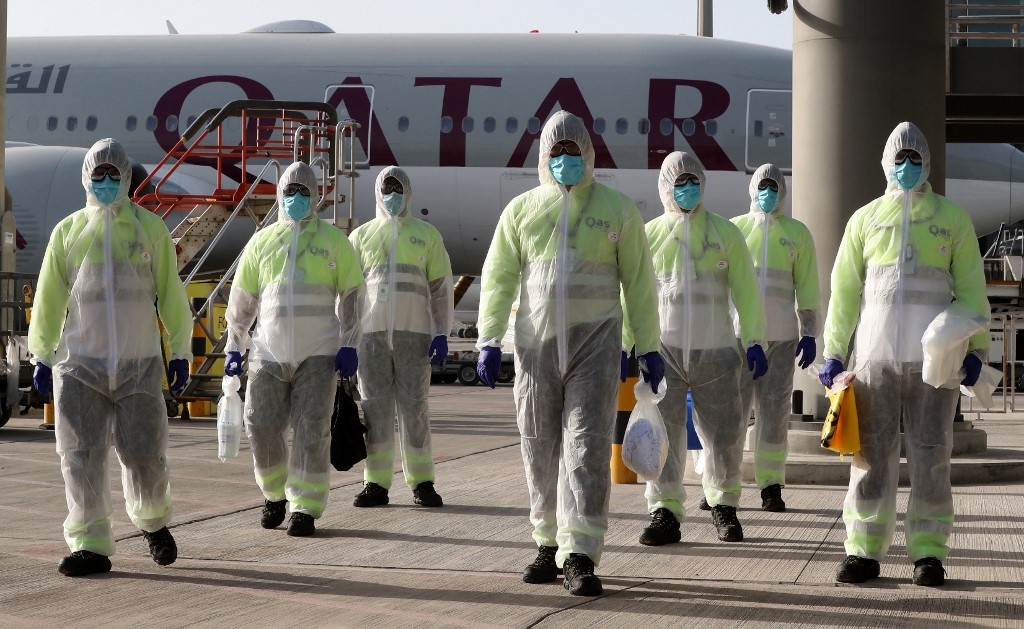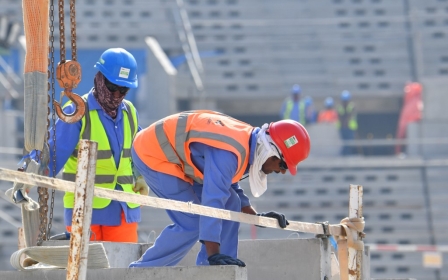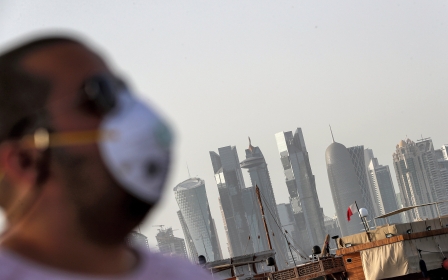Coronavirus: Qatar authorities use pandemic as smokescreen to 'expel' Nepali workers

Qatari authorities detained dozens of migrant workers in March and deported them, despite telling them they were being held for coronavirus tests, Amnesty International said on Wednesday.
The British rights group said it interviewed 20 men from Nepal who were rounded up and detained last month by Qatari police, along with hundreds of other migrant workers. They were told they would be tested for Covid-19 and then returned to their accommodations.
The men were then held in “appalling conditions” in detention centres for several days before being deported to Nepal.
“It is disturbing that the Qatari authorities appear to have used the pandemic as a smokescreen for further abuses against migrant workers, many of whom feel police misled them by saying that they were to be ‘tested’,” said Stephen Cockburn, Amnesty International’s deputy director of global issues.
“The authorities must provide reparations for the way that these men have been treated, and consider allowing those who have been expelled to return to Qatar if they so wish. The men’s employers must also urgently pay the salary and employment benefits they are owed.”
New MEE newsletter: Jerusalem Dispatch
Sign up to get the latest insights and analysis on Israel-Palestine, alongside Turkey Unpacked and other MEE newsletters
The Qatari government rejected the allegations, saying that the workers were repatriated to their countries of origin after the state found them engaging in illegal activities while it was conducting inspections as a part of its coronavirus control measures.
"Since the start of the coronavirus global pandemic, Amnesty International has committed a disproportionate amount of time and resources to making unfounded allegations against Qatar," the government's communications office said in a statement.
"They consistently distort the reality of the public health response and fail to acknowledge the numerous measures introduced to protect the wellbeing of citizens and residents."
Amnesty said the Qatari government responded to its evidence by saying that while inspecting the industrial area as part of the Covid-19 measures, “officials uncovered individuals engaged in illegal and illicit activity. This included the manufacture and sale of banned and prohibited substances, along with the sale of dangerous food goods that could seriously threaten the health of people if consumed”.
The organisation reported that 18 of those it interviewed said they were not aware of any such charges, and strongly denied the government's claims.
Only two of the 20 workers interviewed by Amnesty said they were contacted by their companies, which offered to pay their salaries. And all of them left the country without receiving their owed salaries or end-of-service benefits, the rights group added.
The organisation called on Doha to ensure that the migrant workers are informed of the reasons for their detention and are granted the opportunity to challenge them legally.
Qatar says it also rejects the allegations about the conditions under which the individuals were arrested, saying that the country treats all people who are arrested or detained "with respect, dignity and humanity in line with international standards".
"The individuals were repatriated to their country of citizenship in accordance with Qatar's legal system," the government said.
"The discovery of illegal activities preceded the Industrial Area public health quarantine," it added.
Middle East Eye delivers independent and unrivalled coverage and analysis of the Middle East, North Africa and beyond. To learn more about republishing this content and the associated fees, please fill out this form. More about MEE can be found here.




